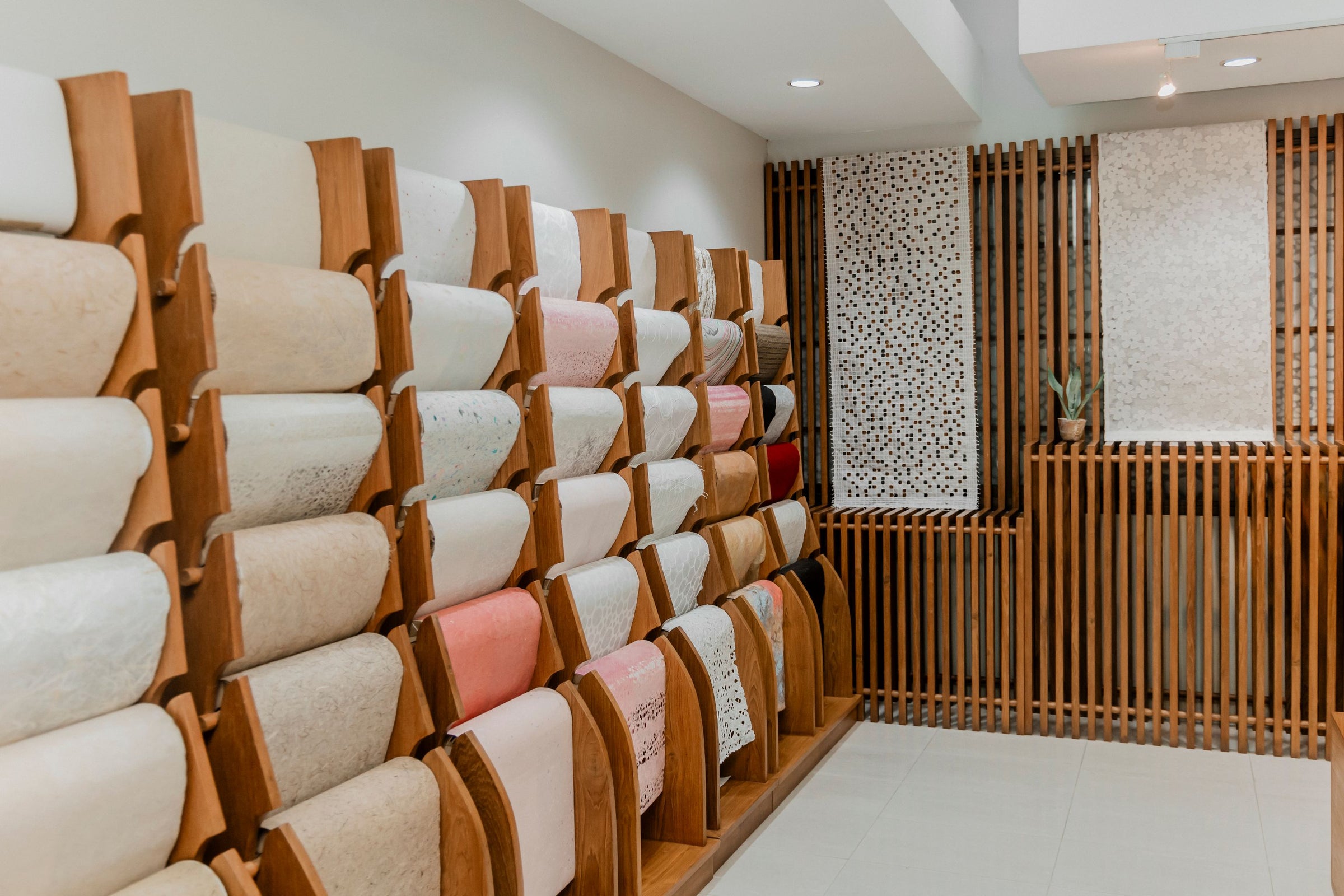Lemon&Butter Gyotaku Club: Introducing the Ancient Art of Gyotaku in Modern Thailand
At the quaint Kensaku restaurant, amidst the aroma of fresh cuisine, a unique art form is unfolding on a table lined with paper rolls. This isn't your typical art workshop; it's a dive into the intricate world of 'Gyotaku', an ancient Japanese method of fish printing, passionately presented by Thank - Jaturun Rungruengsaowapak and Deeni Tantivejkul, the dynamic duo behind the 'Lemon&Butter Gyotaku Club'.
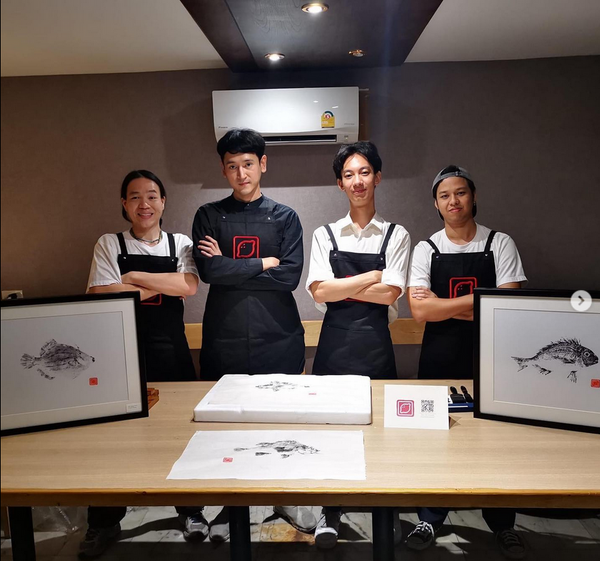
Thank (middle-right) and Deeni (middle-left). Follow Lemon&Butter Gyotaku Club here for beautiful Gyotaku prints, exclusive events, and more.
Gyotaku, translating to 'fish impressions', was traditionally a way for Japanese fishermen to record their catch. This art form involves applying ink to a fish and pressing it onto paper or cloth, creating a detailed print (read more about Gyotaku here). At Lemon & Butter Studio, Thank and Deeni have transformed this technique into a fascinating blend of art and science, capturing the beauty of fish from head to tail.
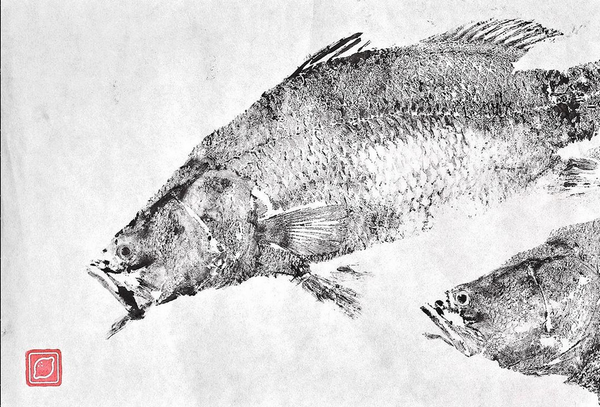
Their journey began with humble beginnings, using A4 paper and cake-printing ink to print their first grouper. The challenge of printing detailed fish images soon turned their curiosity into a serious hobby. Balancing their regular jobs, with Deeni as a graphic designer and Thank working at a cocktail bar, they dedicated Monday evenings to practice on the rooftop of Deeni's company.
The duo's commitment to authenticity led them to research extensively, even studying Japanese articles with help from a Japanese friend. Their dedication bore fruit, as they shifted from homemade ink to authentic Sumi Ink, made from burning pine cones and salmon skin, and acquired directly from Japan.
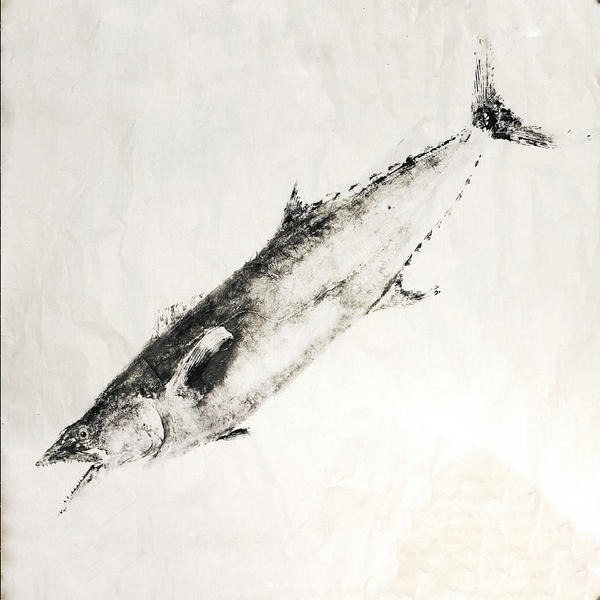
Chinese Seerfish Gyotaku Fish Printing on Thin Natural Kozo Washi Paper (45 gsm)
A critical element in Gyotaku is the choice of paper. Thank and Deeni choose Kozo Studio’s Washi Paper, also known as kozo, Hanji, mulberry, and rice paper, known for its refined texture and ability to conform to the fish's shape while capturing intricate details. This attention to detail extends to their printing process, where each fish is carefully prepared, inked, and printed, ensuring the preservation of every scale and fin.
Thank and Deeni primarily use Thin White Kozo Paper (45 gsm) and Thin Natural Kozo (45 gsm) for their Gyotaku creations. These two mulberry papers are the most fundamental and classic choice for Gyotaku. Crafted from the finest kozo fiber pulp, they exhibit a delicate texture along with remarkable strength and pliability. Their uncoated nature enhances the authenticity of each print, providing a traditional texture and feel. Beyond the realm of Gyotaku, they are equally celebrated in the practices of traditional painting and calligraphy, attesting to their versatility and enduring popularity.
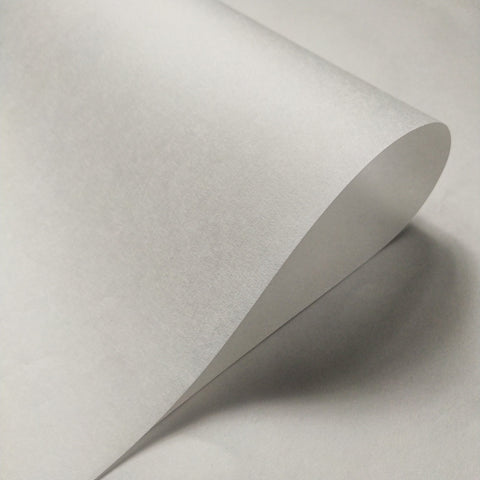

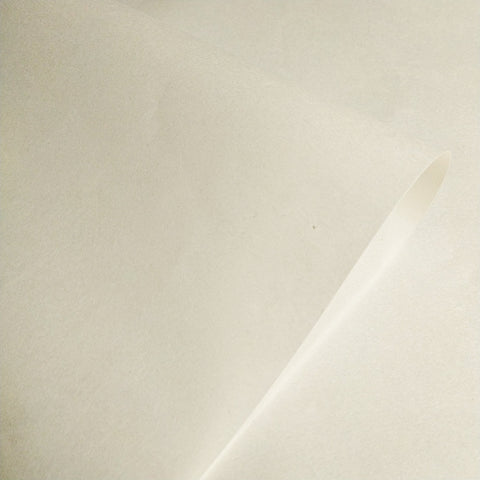
Their artistic process is not just about printing; it's about storytelling. Each print, whether it be the Thai anchovy arranged to mimic schooling behavior or the magnificent oar fish composed to fit the paper, tells a unique story. This storytelling aspect is further enhanced by their graphic design skills, adding a layer of artistic composition to each print.
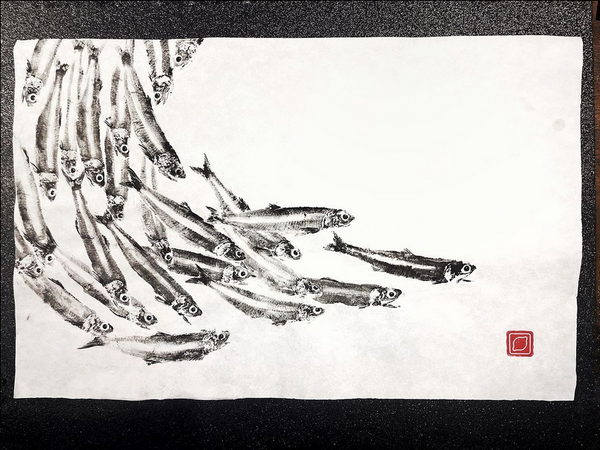
School of Thai anchovy on Thin Kozo Paper by Lemon and Butter
The Lemon & Butter Gyotaku Club is more than just an artistic endeavor; it's a community builder. Thank and Deeni dream of organizing workshops to spread their knowledge and passion for Gyotaku, fostering a community of enthusiasts and local businesses. Their work, from small mackerel to large Yellowfin Tuna, has already begun to draw attention both locally and internationally, with fishermen and fish enthusiasts alike admiring their craftsmanship.
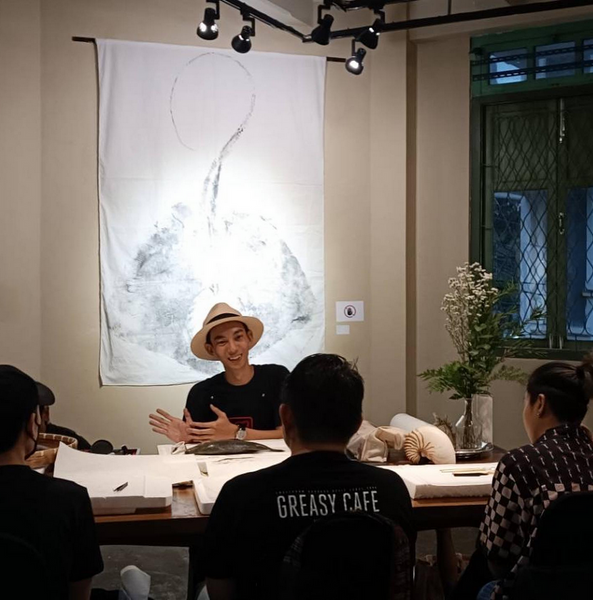
Gyotaku workshop by Lemon&Butter in Bangkok
As they continue to hone their skills and explore new challenges, Thank and Deeni's work stands as a testament to the fusion of tradition and modernity, art and science, and the power of passion in creating the extraordinary. In their hands, fish printing is not just a record of a catch; it's a celebration of life and a tribute to the aquatic world.




